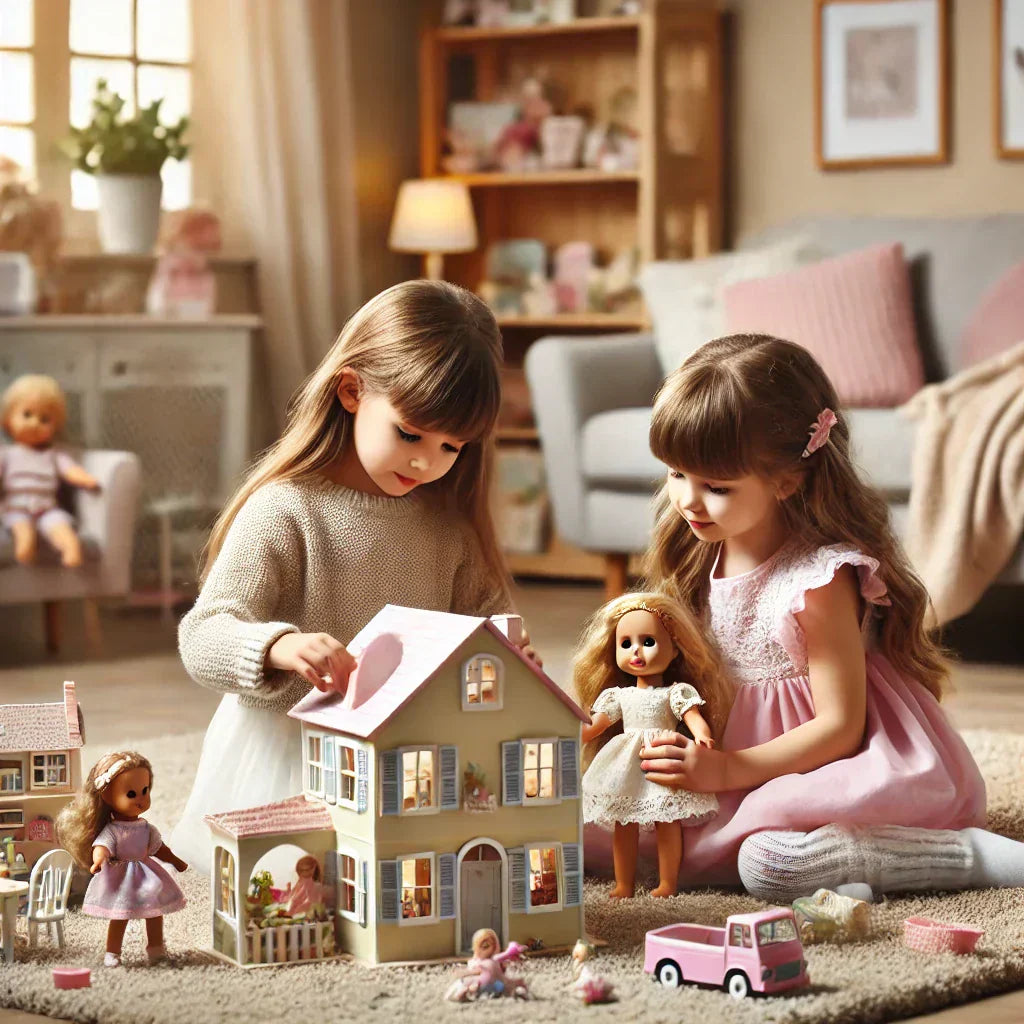
How Dolls Help in Child Development: Advice From Psychologists
Share
reading time 5 minutes
Dolls are not just toys, they are a universal tool for child development. They help develop emotional intelligence, imagination, social skills and even fine motor skills. In this article, we looked in detail at how dolls can become an important part of a child’s upbringing, based on advice from psychologists.
1. Developing emotional intelligence.
Playing with dolls, children learn to recognize and express emotions. For example, they can act out situations from life where dolls are “happy”, “sad” or “angry”. This helps them:
- Understand their feelings.
- Empathize with others.
- Master ways to express emotions through role-playing.
Tip: Invite your child to act out scenarios where the doll is faced with various activities. For example, “the doll fell and is crying” - what can be done to fix it?
2. Developing social skills
Dolls help a child learn the basics of communication. During the game, children:
- Learn to communicate with "other" characters.
- Come up with dialogues, develop communication skills.
- Practice the ability to negotiate and resolve conflicts, especially in group games.
Tip: Organize a game where several dolls "attend" a tea party or go to visit. This will help the child learn the rules of politeness and communication.
3. Stimulating creativity and creativity.
- With the help of dolls, a child can adapt to a fantasy world. This develops:
- Creative thinking.
- The ability to come up with a story.
- The ability to find solutions to non-standard problems.
Tip: Invite your child to create a house for dolls from scrap materials or compose an unusual story about adventures.
4. Development of fine motor skills.
Playing with dolls involves working with your hands: dressing dolls, tying bows, combing hair. These actions:
- Develop coordination actions.
- Strengthen the small muscles of the hands.
- Prepare the hand for writing.
Tip: Buy your child a doll with a variety of accessories - clothes with buttons, ties or Velcro. This is your game, useful and practical.
5. Role in emotional support
Dolls often become "friends" for children, especially in times of stress or change. A child can share his hands with a doll, which helps him:
- Reduce the sound level.
- Feel support.
- Realize your feelings through pronunciation.
Tip: If your child is going through a difficult period, offer them to play with a doll so that they can express their emotions through play.
Conclusion
Dolls are not just toys, they are a powerful tool for the all-round development of a child. They allow you to explore the world, learn interactions, cope with skills and develop skills that will be useful in the future. The main thing is to maintain the child's interest in the game and give them the opportunity to provide creativity and independence.
- Try to include dolls in your child's daily games, and you will see how they will become faithful assistants in their development!